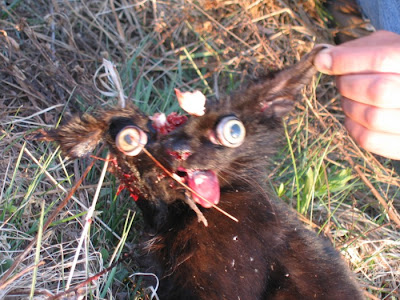I'm a good actor. All the world's a stage and it is necessary to be a good actor to fit into social situations when you don't have a normal emotional response. I have learned how to be superficially charming, and to adapt my personality to elicit the desired response from the target audience. I usually have no trouble acting as the exuberant, sensitive, interested, geeky, arrogant, caring, or considerate guy, as the situation demands. I do however have some trouble with the roles of being modest or stupid.
I used to justify never using these two masks by telling myself that they weren't necessary; another mask would do just as well to achieve the same, or equally desirable, ends. But I realised several years ago that I was just telling myself what I wanted to hear, and since then have worked on them.
I've worked on modesty quite a lot, and even though it was extremely difficult at times, there was a period when it even became one of my favourite go-to masks - people (in the UK anyway) like self depreciation and do not like someone who has let on that they have achieved something impressive. To pretend to an imbecile that I am not superior to them certainly did not come naturally, but I just had to remember that it is just a game which has an objective; it is just an act, and achieving the end by the most efficient route has its own satisfaction.
Acting stupid... I'm still working on that. I've practiced looking stupid: relaxed and defocused eyes, combined with a slackening of the jaw muscles works extremely well. Normally I consciously decide to intonate my voice, use facial expressions, and gesticulate, so it is easy to just use my natural monotone, speak a little slower, and not be as expressive to complete the main construction of the mask.
I still struggle to not say something intelligent, but I've found that coming across as initially stupid (non-threatening) but actually intelligent is one of the most disarming and useful personas to wear in some situations. It comes across as wise rather than intelligent.
I still struggle to not say something intelligent, but I've found that coming across as initially stupid (non-threatening) but actually intelligent is one of the most disarming and useful personas to wear in some situations. It comes across as wise rather than intelligent.








